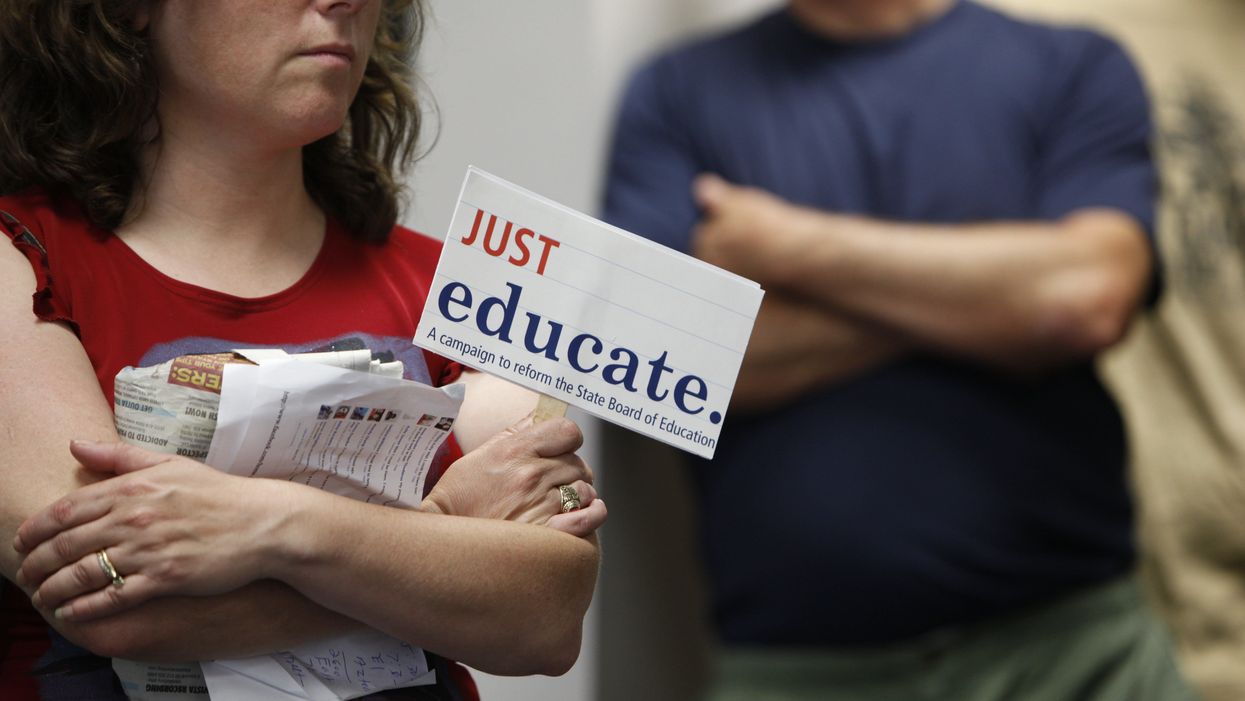
Robert Daemmrich Photography Inc/Corbis via Getty Images

'I identify in some other way'
One of Texas' largest school districts told third- through 11th-grade students in a recent survey, "Sex is what a person is born. Gender is how a person feels."
The statement was part of Austin Independent School District's
2018-2019 Student Climate Survey administered to students this year, the Federalist reported. Following the statement, students were asked to indicate how they felt about their identities.
The answer options included: "I am a girl/woman," "I am a boy/man," and "I identify in some other way." Additional space was provided for students to "describe how they identify," but it was optional.
Austin ISD is the fifth largest school district in the state with more than 83,000 children enrolled. The Federalist estimated that 57,000 children took the survey this year, assuming the number of an even division of students across the grade levels.
The district claims that the questionnaire helps it "examine factors contributing to student success beyond test scores," a spokeswoman told the Federalist in an email.
Parents often have no idea what questions are asked on "school climate surveys" until after their children take the evaluation. At the beginning of each school year, parents sign multiple forms allowing the district to administer such surveys.
Surveys such as the one used by AISD are part of the Obama administration's 2015 Every Student Succeeds Act, which updated the No Child Left Behind Act of 2002.
The updated act included allowing states to evaluate children on non-academic behaviors and feelings known as "socioemotional learning." The surveys are considered to be part of an accountability tool called the "fifth indicator" in the ESSA.
In 2017, non-academic questions were added to the National Assessment of Educational Progress or more commonly known as the Nation's Report Card.
Some special interests groups, including the Collaborative for Academic, Social, and Emotional Learning organization, have used the ESSA to push districts into expanding this type of questionnaire. CASEL leads multiple initiatives and produces high-quality resources to advance and implement SEL practices and policies, according to its website.
Some critics believe the surveys are a way to impose transgender ideology onto students.
"Both the content and process of CASEL are statist in nature ... think of it as Groupthink 10.0: We're the government and we're here to help. The net effect is to build a collective mindset," Stella Morabito, a Federalist senior contributor, said last year at a presentation before the Family Research Council, the Christian Post reported.
Morabito worked in intelligence for about 10 years and is an expert in propaganda.
"Power elites have always utilized propaganda through psychological manipulation to coerce the masses to bend to an agenda, and over time false premises, like the notion that 'sex is assigned at birth,' slowly make their way into law, she explained," she said.
Self-reported assessments are also highly unreliable, according to experts.
Pediatrician and education researcher Karen Effrem told the Federalist that research suggests that simply asking children about specific behaviors can create problems.
"Whether it's comprehensive sex education or a survey, if you're bringing stuff like that [sexuality] up you are potentially creating upset or conflict or just planting the idea," she said.
Check out the survey below:
2018-2019 AISD Student Clim... by on Scribd